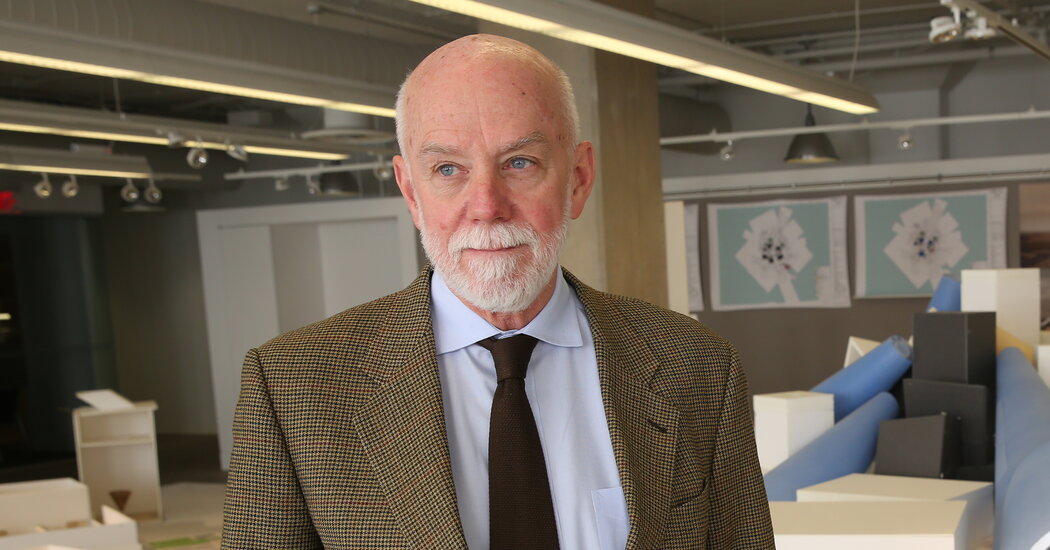
Richard Armstrong, the director of the Solomon R. Guggenheim Museum, said he planned to retire from his role next year, capping off more than 14 years leading the institution and its international offshoots.
Armstrong, 73, whose tenure included weathering the pandemic and responding to calls for change around racial inequities, both internally and on the museum’s walls, announced the move in an interview with The Financial Times that was published on Friday.
“Sometime next spring,” he said in the interview, “I’ll be leaving the museum. It’ll be almost 15 years by then and that’s a long time. The board is rejuvenated, and active — it’s a good moment.”
In a news release, the museum said that before Armstrong steps down in 2023, he will work with its board of trustees to find his successor.
Under his leadership, Armstrong was tasked in recent years with responding to unionization efforts and an outcry over what members of the museum’s curatorial department called an “inequitable work environment that enables racism, white supremacy, and other discriminatory practices.” Armstrong responded to the demands for change by initiating conversations with the curators, saying that he saw it as an opportunity to become a more diverse and equitable organization.
The museum later approved a plan to address those complaints, making it one of the first major cultural organizations to provide details of an expanded diversity effort amid industrywide calls for change. The plan included promises to bolster policies around reporting discrimination, and a new committee was charged with examining the institution’s exhibitions and acquisitions through the lens of equity and diversity.
After one of the museum’s top administrators, Nancy Spector, stepped down amid charges of racism, the museum named Naomi Beckwith to succeed her, making her the institution’s first Black deputy director and chief curator. (After a Black curator, Chaédria LaBouvier, accused Spector of racism, an independent investigation concluded there was no evidence that the curator had been “subject to adverse treatment on the basis of her race.”) Another leadership shake-up followed later that year, when the billionaire collector J. Tomilson Hill was appointed as board chairman, and the writer Claudia Rankine was elected its second ever Black female trustee. In a statement along with the announcement, Hill said Armstrong had guided the museum skillfully through the pandemic, calling him a “steady and encouraging presence.”
The announcement closely follows the news of a major shift in leadership at the Metropolitan Museum, where Daniel H. Weiss said he will step down as president and chief executive in June 2023.
Armstrong became director of the museum in 2008, succeeding Thomas Krens, an expansionist leader who transformed the Guggenheim into a global brand with Guggenheim Bilbao. Armstrong came from the Carnegie Museum of Art in Pittsburgh, which he led for a dozen years. Interviewed after he was named director, Armstrong said he aimed to present shows highlighting the work of young artists, which he often did.
Armstrong also oversaw a particularly tumultuous period several years ago as the Guggenheim sought to expand overseas with a new museum in Abu Dhabi. The project was met with protests and demands for assurances that the laborers would be paid and treated fairly, leading to promises from Armstrong that the museum was deeply committed to labor issues. The long-delayed project is scheduled to be completed in 2025, after Armstrong’s departure.
Another major change under Armstrong came earlier this year, when the Guggenheim quietly erased the Sackler name from an education center over the family’s ties to the opioid crisis.
“As a leadership team, we have listened, learned and adapted to meet the changing dynamics of our program, brand, audiences, and funders,” Armstrong said in a statement. “I look forward to watching the Guggenheim community continue to flourish and be a catalyst for inventive thinking and transformative art experiences long after my departure.”




